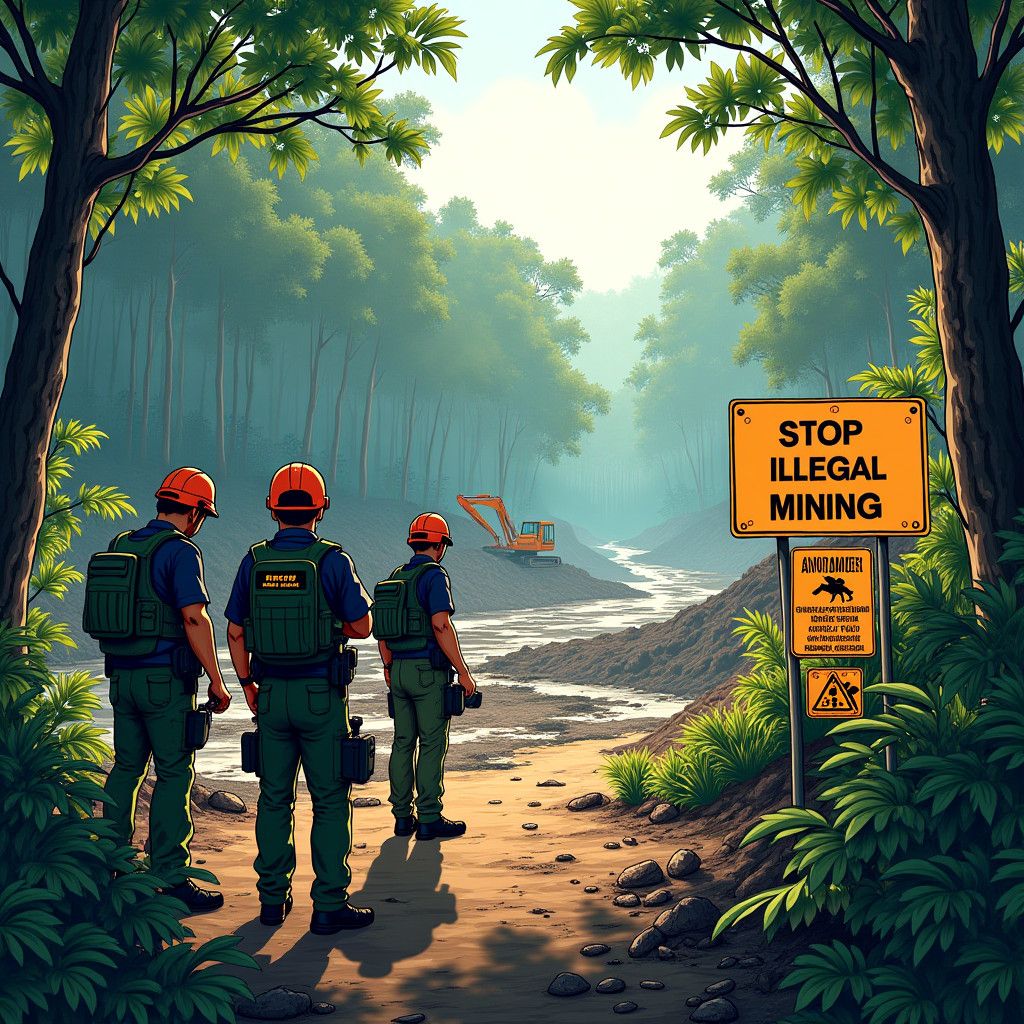Illegal gold mining poses a significant threat to Brazil’s environment, particularly in the Amazon rainforest, one of the most biodiverse ecosystems on the planet. In recent years, the surge in demand for gold has resulted in an increase in illegal mining activities, which has led to deforestation, loss of biodiversity, and pollution of local water sources. In response, the Brazilian government has launched a comprehensive crackdown on these unlawful operations, employing innovative forensic tools and strategies to target gold smuggling and restore the integrity of its natural resources.
The crackdown, spearheaded by the Ministry of Justice and Public Security, involves the incorporation of modern technologies that enhance the monitoring and enforcement capabilities of law enforcement agencies. For instance, satellite imagery coupled with artificial intelligence is utilized to analyze areas of illegal activity, enabling authorities to deploy resources more efficiently. This technology plays a crucial role in mapping out illegal mining sites, empowering the government to take decisive action.
One of the most pressing issues with illegal mining is its contribution to environmental degradation. The extraction process not only removes large amounts of vegetation but also introduces harmful mercury into the ecosystem. A report from the World Wildlife Fund (WWF) highlighted that illegal miners use about 1,000 tons of mercury annually, which contaminates soil and water, posing serious health risks to local communities. By cracking down on illegal operations, Brazil aims to mitigate these ecological impacts, thereby supporting biodiversity and fostering healthier habitats for wildlife.
Brazil’s recent efforts have already shown tangible results. In a coordinated operation that involved federal and local authorities, approximately 157 illegal mining sites were dismantled in just one month. This operation, dubbed “Operation Guardiões do Verde” (Guardians of the Green), showcased Brazil’s commitment to combating environmental crimes. According to statements made by federal police, these operations not only focus on dismantling mining sites but also involve tracking down those responsible for the financing and management of these illegal enterprises.
Moreover, the financial implications of illegal gold mining cannot be overstated. The Brazilian government loses significant revenue due to these unregulated activities. Estimates suggest that illegal gold mining costs the country millions in lost tax revenue and sustainable economic growth. By implementing stricter laws and effectively enforcing them, Brazil hopes to create a transparent gold supply chain, which will ultimately benefit the national economy.
In addition to combining high-tech monitoring tools and law enforcement, Brazil is fostering community involvement in conservation efforts. Collaborative programs educate local communities on the ecological impacts of illegal mining and promote sustainable livelihoods as alternatives. For instance, initiatives that support ecotourism and sustainable agriculture have gained traction, providing local populations with income without sacrificing the environment.
Governments worldwide are closely observing Brazil’s approach, as the country can serve as a model for others grappling with similar issues regarding illegal resource extraction. The integration of forensic technology, community engagement, and law enforcement could potentially lead to a global strategy for sustainable resource management.
Furthermore, Brazil’s commitment to combating illegal gold mining is in harmony with its goals under the Paris Agreement to combat climate change. Protecting the Amazon is vital not only for Brazil’s environment but also for global climate health. Forests play an essential role in sequestering carbon, and illegal mining contributes significantly to the emissions produced by deforestation.
Challenges persist, notably from organized crime groups that have historically benefited from the illegal mining economy. To counteract these threats, the Brazilian government needs to enhance the security and resilience of its enforcement agencies. The task is monumental; however, the resolve shown by the government, combined with technological advancements and community support, paves the way for a sustainable future.
In summary, Brazil’s multi-faceted crackdown on illegal gold mining demonstrates a proactive approach to not only preserving one of the world’s most delicate ecosystems but also bolstering its economy against unlawful activities. As the initiative progresses, it will be critical for the government to maintain focus on transparency, sustainability, and community engagement. By doing so, Brazil can set a benchmark for other nations to follow, fostering a global movement towards environmental stewardship and sustainable economic practices.












